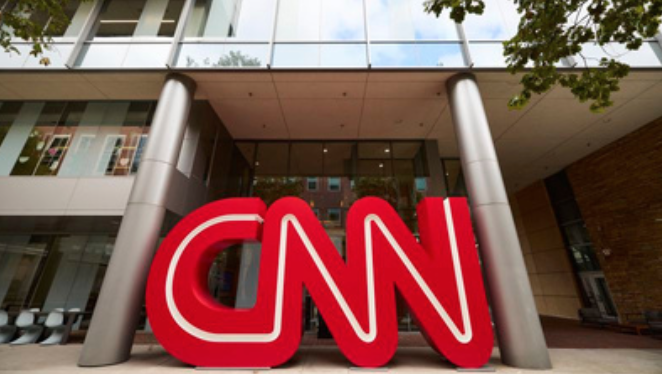Last week a US Appeals Court dismissed an attempt by Donald Trump to revive a defamation lawsuit against CNN.
In the original suit in 2022 Trump objected to the use of the term “the big lie” in relation to his claims that the 2020 election was rigged and stolen and gave victory to Joe Biden.
The Appeals Court upheld a Florida court ruling that Trump had failed to prove “falsity”, a key element for defamation.
In an editorial comment, CNN said the Appeals Court ruling affirmed that news outlets tend to prevail when they stand their ground rather than settle out of court with Trump.
Settlements between Trump and major media companies have attracted widespread criticism in the past few months.
The original lawsuit also accused CNN of associating Trump with Adolf Hitler and the Nazis, quoting guests on CNN programmes.
The judge in the case ruled that these were opinions and “bad rhetoric is not defamation when it does not include false statements of fact.’
Trump’s appeal against this ruling was also thrown out by the US Appeals Court last week.
Cases like this, where Trump’s lawsuits against American media giants are in large part frivolous, puts into focus the predicament he has put himself into by threatening the BBC.
Trump has little or no chance of winning any damages.
In the first place, the BBC is not a commercial entity.
It is a public corporation funded by British taxpayers through through a tv licence fee. There is no chance of using taxpayers’ money to fund an out of court settlement.
Trump would need to follow through on his threat to sue and take his case to court.
His defamation case cannot be brought in a British court because it’s out of time. Trump has missed the one year limit. So his lawyers are looking at suing in Florida where the limit is two years from when the alleged defamation took place.
In this instance Trump has a mountain to climb to establish that a Florida court has jurisdiction as the Panorama programme he complains about was not broadcast outside the United Kingdom.
The BBC will stand firm. It will resist any claim for damages because Trump would have to prove he lost money and reputation as a result of the careless editing of his own speech.
The effect of that call to his supporters to walk to the US Capitol on 6th January has been scrutinised in detail in the media and criminal court cases.
The Panorama programme had nothing to do with it as it was a documentary aired years later.
The BBC has nothing to gain from caving in, and everything to gain from standing firm against Trump’s threats.
A court case against the BBC will highlight the weakness of American media in their role of holding government, and a president, to account.
The BBC will come out stronger than ever, if perhaps a little flawed at times by human error, but it has shown that its executives acted properly in duly apologising for the Panorama error as soon as it became public.
The question remains, will Trump dare to follow through on his threats and go to court, or is this yet another frivolous attempt to extract money from organisations he perceives as not only critics and scrutineers but enemies?


